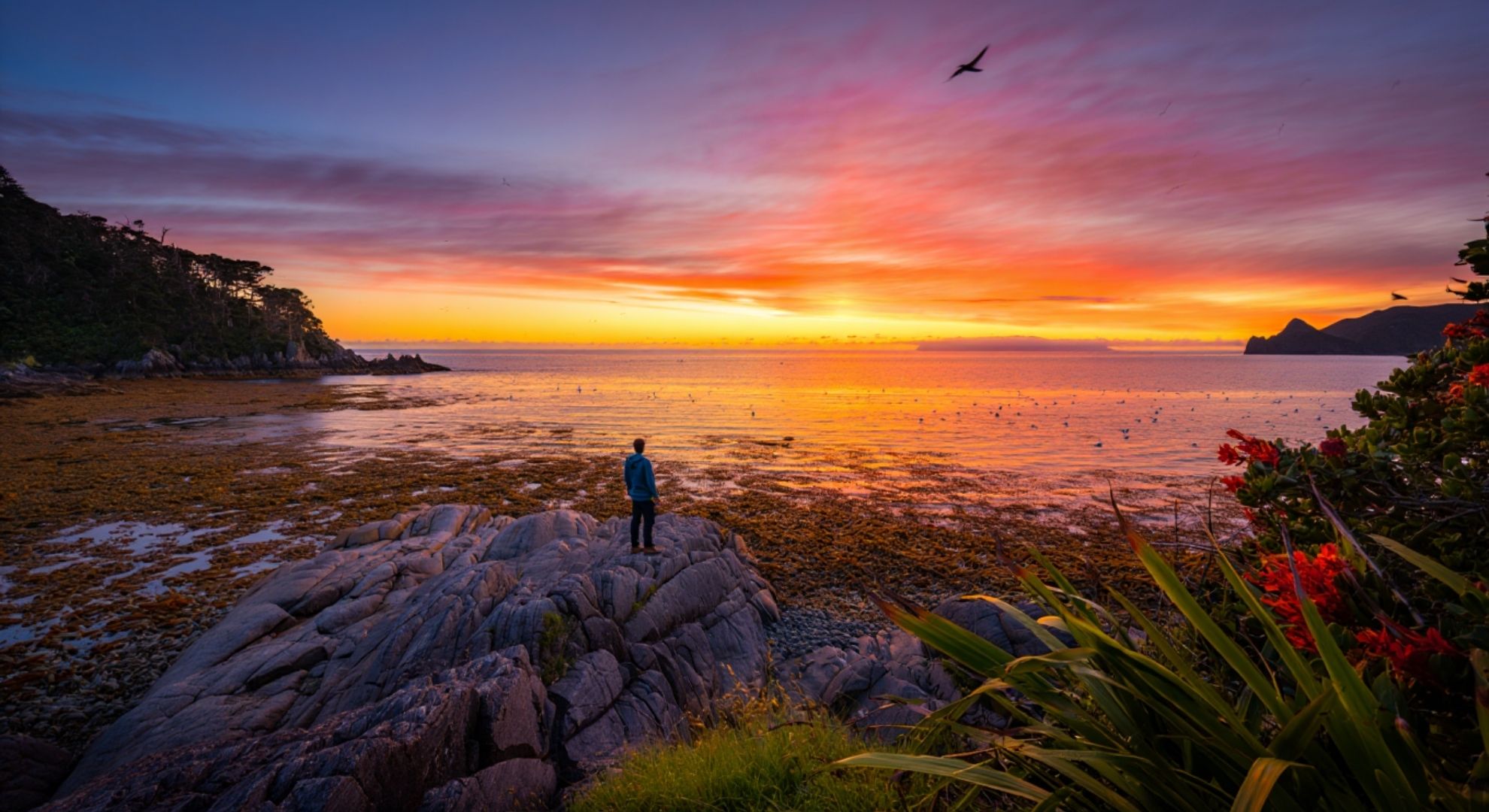At the southernmost edge of New Zealand lies a destination so remote, so raw, that travelers call it the ‘End of the World.’ It’s a place where landscapes feel untouched, where nature dictates the rhythm of life, and where visitors often leave saying they’ve been changed forever.
A destination like no other
This corner of New Zealand, often referring to Stewart Island and its far-flung surroundings, has an atmosphere unlike anywhere else in the country. Separated from the bustle of the mainland, it offers rugged coastlines, ancient forests, and skies so dark you can see galaxies with the naked eye.
For many, simply arriving here feels like stepping beyond civilization into a world where time slows down.
What makes it ‘life-changing’
Travelers describe the experience as transformative for several reasons:
- Isolation and silence: far from crowded tourist routes, the stillness is overwhelming.
- Wildlife encounters: penguins, sea lions, and native birds thrive in their natural habitat.
- Connection to nature: hiking through unspoiled bush or gazing at endless horizons creates a sense of humility.
- Cultural depth: Māori traditions tied to the land remind visitors of New Zealand’s spiritual roots.
This isn’t a trip about ticking boxes — it’s about rediscovering simplicity.
Comparing New Zealand’s travel icons
| Destination | Appeal | Experience type |
|---|---|---|
| Queenstown | Adventure sports, adrenaline rush | Fast-paced, high-energy |
| Rotorua | Geothermal wonders, Māori culture | Cultural and natural mix |
| ‘End of the World’ | Remote wilderness, raw landscapes | Slow, reflective, transformative |
The table shows why many travelers put this destination in a category of its own: it’s less about excitement and more about perspective.
Stories from those who’ve been
Some visitors say they arrived seeking adventure but left with something unexpected: clarity. Walking along windswept beaches where human footprints vanish with the tide, or hearing only the call of native birds in forests untouched for centuries, creates a profound sense of grounding.
One traveler shared: “At the ‘End of the World,’ I stopped worrying about time and started noticing life.”
A test of simplicity
Unlike more polished tourist hubs, the region offers limited infrastructure. Cafés and shops are scarce, accommodations are simple, and weather can be unpredictable. But these very challenges are what make the journey unforgettable.
Stripped of distractions, visitors are pushed to live in the moment — cooking their own meals, braving the rain on hikes, or simply watching the sun disappear into the endless ocean.
The wildlife factor
For many, the highlight is the wildlife. Stewart Island and the surrounding areas are among the best places to see the kiwi bird in the wild, a rare opportunity even for locals. Penguins waddle along beaches, while sea lions bask lazily on the sand. The abundance of untouched habitats creates encounters that feel genuine, not staged.
Why travelers keep returning
Despite its remoteness, many travelers return again and again. They say it’s not just a place to visit but a place to reset — somewhere to detach from noise, reconnect with nature, and remember what matters most.
As more people search for meaningful travel, the ‘End of the World’ embodies the shift from sightseeing to soul-searching.
The journey itself
Getting there isn’t simple. The ferry ride across Foveaux Strait is famously rough, and flights can be delayed by unpredictable weather. But those who make the journey say that’s part of the magic: the effort ensures only those truly curious will reach it.
The reward? A memory that lasts a lifetime.
